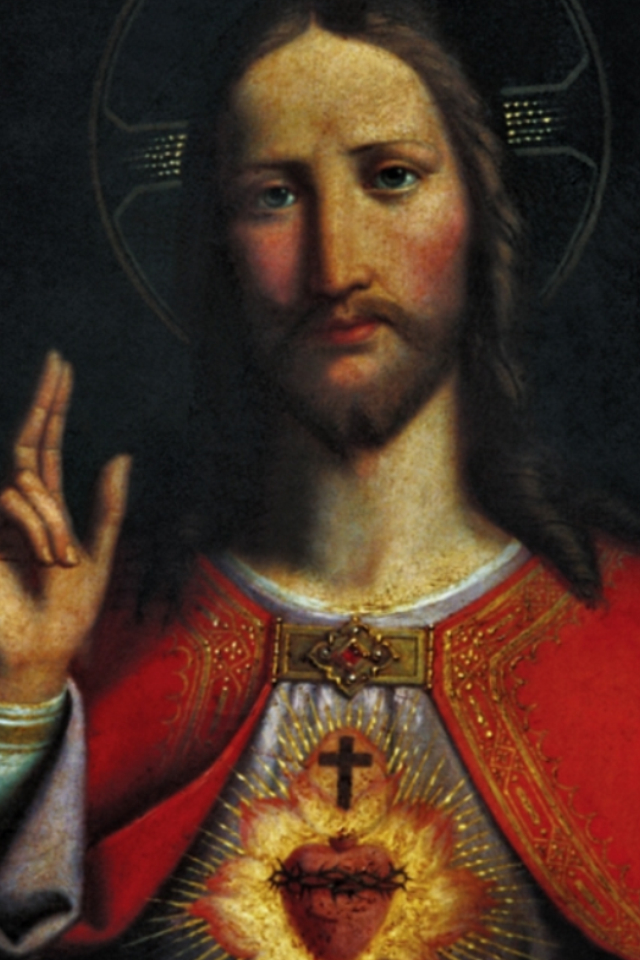When Jesus saw the crowds, he had compassion for them, because they were harassed and helpless, like sheep without a shepherd (Mt. 9:36).
As a consequence of His compassion, Our Lord established what today we call the Apostolic College; the twelve Apostles and their successors the bishops sent to proclaim the good news of salvation. ‘The kingdom of heaven has come near. Cure the sick, raise the dead, cleanse the lepers, cast out demons’.
Our Lord then issues a very important caveat: ‘You received without payment; give without payment’. There is great freedom for both those commissioned with this mission to evangelize and for those who receive the good news of salvation because it’s not meant to be a commercial exchange. On Friday, we celebrated the Feast of Our Lord’s Most Sacred Heart and in very real sense we contemplated the compassion of Our Lord whose Heart is full of goodness and love. It is not an exaggeration to say that the faithful today and harassed by the moral and doctrinal confusion all around us but we are not helpless because in the absence of vigilant and loving shepherds we know that Our Lord is always accessible to us in the truth and wisdom of the gospel, in His Sacraments and most especially in the Most Blessed Sacrament of the Altar. It is in this Sacrament that we have
access to His Eucharistic Heart, source of all consolation. Providentially, there is a Feast that celebrates this mystery of the Eucharistic Heart of Jesus and it is celebrated on the Thursday following the Feast of the Sacred Heart of Jesus.
This Feast was established by Pope Benedict XV in 1921. In instituting it, Pope Benedict wrote: The chief reason of this feast is to commemorate the love of Our Lord Jesus Christ in the mystery of the Eucharist. By this means the Church wishes more and more to excite the faithful to approach this sacred mystery with confidence, and to inflame their hearts with that divine charity which consumed the Sacred Heart of Jesus when in His infinite love He instituted the Most Holy Eucharist, wherein the Divine Heart guards and loves them by living with them, as they live and abide in Him. For in the sacrament of the Holy Eucharist He offers and gives Himself to us as victim, companion, nourishment, viaticum, and pledge of our future glory.
We have contemplated these truths in the great feasts that we have celebrated beginning with the Feast of Corpus Christi. It is our privilege to assist at the celebration of the Holy Sacrifice of the Mass.
We have often noted and lamented the fact that the denial of the sacrificial nature of the Mass has had a terrible effect on the life of the Church. Nevertheless, it must be said that we cannot adopt the attitude that unless the Mass celebrated is a Mass in the Tridentine Rite (as it is commonly called), we will not attend it. God would certainly not leave us without the necessary means of salvation.
Avoiding liturgical abuses is wise and necessary but to question the validity or liceity of the Novus Ordo Mass places us on a dangerous path and sadly, provides those who in principle it would seem, have as their goal the suppression of the Traditional liturgy with at least a measure of justification. I mention this because I believe that it is a needed corrective and prudent caveat. The vast majority of Catholics today have no access to the Traditional liturgy. This is the reality of the situation. Would they not benefit from witnessing the reverent demeanour of those who have come to appreciate and cherish the riches of sacred tradition? The restoration of the sense of the sacred will not be advanced by an obstinate approach. The Father seeks those who worship Him in spirit and in truth.
Let us ask Our Lord today to give us the grace to live a profoundly Eucharistic life as the fullest expression of our Christian discipleship; a life of genuine piety centred on the Mystery of the Blessed Sacrament of the Altar. Let us however, also implore our Heavenly Father that He renew in our times the promise that He long ago made through the Prophet Jeremiah: I will give you shepherds after my own heart, who will guide you with knowledge and understanding (3:15).

